
Poul William Anderson was an American fantasy and science fiction author who was active from the 1940s until the 21st century. Anderson also wrote historical novels. His awards include seven Hugo Awards and three Nebula Awards.
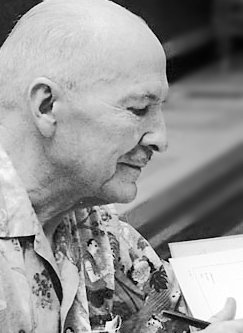
Robert Anson Heinlein was an American science fiction author, aeronautical engineer, and naval officer. Sometimes called the "dean of science fiction writers", he was among the first to emphasize scientific accuracy in his fiction, and was thus a pioneer of the subgenre of hard science fiction. His published works, both fiction and non-fiction, express admiration for competence and emphasize the value of critical thinking. His plots often posed provocative situations which challenged conventional social mores. His work continues to have an influence on the science-fiction genre, and on modern culture more generally.
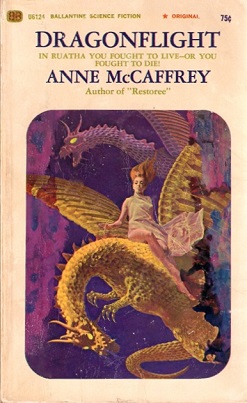
Dragonflight is a science fiction novel by the American-Irish author Anne McCaffrey. It is the first book in the Dragonriders of Pern series. First published by Ballantine Books in July 1968, it was a fix-up of two novellas which between them had made McCaffrey the first woman writer to win a Hugo and a Nebula Award.

Laurence Manning was a Canadian science fiction author.

Joe William Haldeman is an American science fiction author. He is best known for his novel The Forever War (1974). That novel and other works, including The Hemingway Hoax (1991) and Forever Peace (1997), have won science fiction awards, including the Hugo Award and Nebula Award. He was awarded the SFWA Grand Master for career achievements. In 2012 he was inducted as a member of the Science Fiction Hall of Fame. Many of Haldeman's works, including his debut novel War Year and his second novel The Forever War, were inspired by his experiences in the Vietnam War. Wounded in combat, he struggled to adjust to civilian life after returning home. From 1983 to 2014, he was a professor teaching writing at the Massachusetts Institute of Technology (MIT).
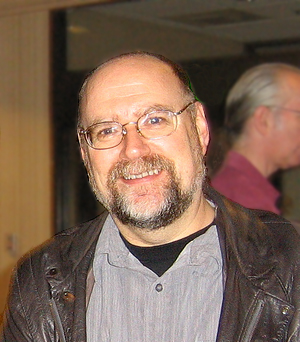
Robert Charles Wilson is an American-Canadian science fiction author.

Ted Chiang is an American science fiction writer. His work has won four Nebula awards, four Hugo awards, the John W. Campbell Award for Best New Writer, and six Locus awards. His short story "Story of Your Life" was the basis of the film Arrival (2016). He was an artist in residence at the University of Notre Dame in 2020–2021.
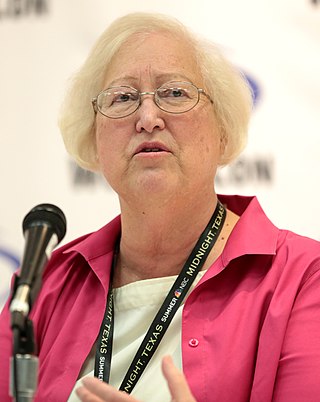
Constance Elaine Trimmer Willis, commonly known as Connie Willis, is an American science fiction and fantasy writer. She has won eleven Hugo Awards and seven Nebula Awards for particular works—more major SF awards than any other writer—most recently the "Best Novel" Hugo and Nebula Awards for Blackout/All Clear (2010). She was inducted by the Science Fiction Hall of Fame in 2009 and the Science Fiction Writers of America named her its 28th SFWA Grand Master in 2011.
Charles Leonard Harness was an American science fiction writer.
Adam-Troy Castro is a science fiction, fantasy, and horror writer living in Wildwood, Florida.

Louis Sergio Antonelli was an American speculative fiction author who wrote primarily alternate history, secret history, science fiction, and fantasy. He resided in Clarksville, Texas. Antonelli's stories have been published in print publications based in the United States, the United Kingdom, Australia, and Canada, as well as e-zines based in India and Portugal.
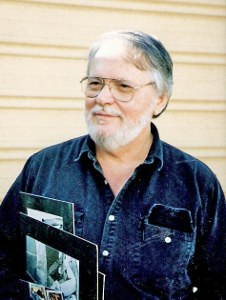
Charles William Rotsler was an American artist, cartoonist, pornographer and science fiction author. Rotsler was a four-time Hugo Award winner and one-time Nebula Award nominee.
Everett Franklin Bleiler was an American editor, bibliographer, and scholar of science fiction, detective fiction, and fantasy literature. In the late 1940s and early 1950s, he co-edited the first "year's best" series of science fiction anthologies, and his Checklist of Fantastic Literature has been called "the foundation of modern SF bibliography". Among his other scholarly works are two Hugo Award–nominated volumes concerning early science fiction—Science-Fiction: The Early Years and Science-Fiction: The Gernsback Years—and the massive Guide to Supernatural Fiction.
The 57th World Science Fiction Convention (Worldcon), also known as Aussiecon Three, was held on 2–6 September 1999 at the Melbourne Convention and Exhibition Centre in Melbourne, Australia.

Carrie Vaughn is an American writer, the author of the urban fantasy Kitty Norville series. She has published more than 60 short stories in science fiction and fantasy magazines as well as short story anthologies and internet magazines. She is one of the authors for the "Wild Cards" books. Vaughn won the 2018 Philip K. Dick Award for Bannerless, and has been nominated for the Hugo Awards.
The 39th World Science Fiction Convention (Worldcon), also known as Denvention II, was held on 3–7 September 1981 at the Sheraton Denver Downtown Hotel in Denver, Colorado, United States.
George Guthridge is an American author and educator. He has published over 70 short stories and five novels and has been acclaimed for his successes teaching writing and critical/creative thinking. In 1997 he and coauthor Janet Berliner won the Bram Stoker Award for the Year's Best Horror Novel.

Julian: A Christmas Story is a dystopian speculative fiction novella written by Robert Charles Wilson.












